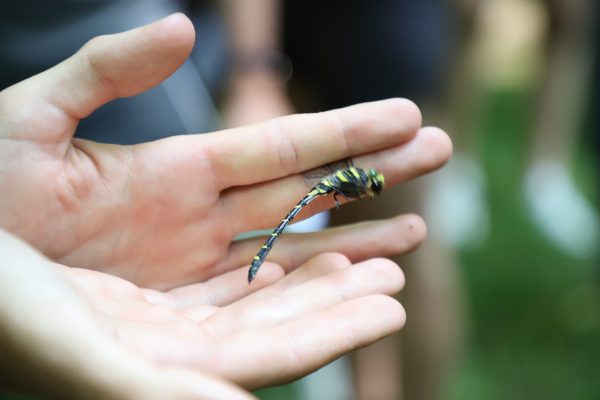Area 1 : Societies, ecosystems: environmental prospective and trajectories
The aim of the research is to develop knowledge, methods, models and tools to help decision-makers take account of the issues linked to biodiversity and ecosystem services in their activities and strategies.

Area 1
Societies, ecosystems: environmental prospective and trajectories
The global erosion of biodiversity and ecosystems is a critical issue for our societies, given our dependence on the many services provided by the biosphere: supply, regulation, support and culture. Most of the damage to the living world is caused by the over-exploitation of biological resources, the artificialisation of land, the release of pollutants and the spread of invasive species.
Added to this is climate change, which is having a predominantly negative impact on living organisms, adding a further degree of uncertainty, as the dynamics of the biosphere and climate are interdependent.
All these factors affect the evolutionary trajectories of natural environments and the resulting ecosystem services are already leading to risk situations that threaten our social and economic activities, from the local to the global level.
In this context, ecosystems are both under threat and can provide responses to these pressures: in terms of mitigation (provision of bio-resources), adaptation and resilience (Nature-based sSolutions).
Our expertise is based on an approach that is both systemic, recognising the complexity of the systems under study, and prospective, based on considering and anticipating global changes to promote a sustainable ecological transition for our societies and territories.
This work, which combines theory and practice, makes it possible to :
- understand the need for joint integration of biodiversity and climate change issues within organisations and territories ;
- help decision-makers to consider these issues by defining a rigorous scientific framework tailored to their needs ;
- help organisations and territories to implement strategies and solutions that are resilient to climate change ;
- support awareness-raising and training initiatives for stakeholders.
Research projects
| Projects | Périods | Partners | Funders |
| GE.CO
(Ecological management of COnflits and use constraints)
|
2024-2026 | Metropolis of Turin, Parc du Queyras, Parco del Monviso… | FEDER Alcotra |
| DOMINOS (Conditions for the emergence of a concerted bioeconomy based on forest resources in the territories) | 2023-2026 | AgroParisTech, INRAE, Univ. de Lorraine, La Vigotte Lab | ADEME |
| PiREN Seine (Climate donwscaling and assessment of climate change impacts on natural habitats | 2025-2028 | EPHE PSL, CEA, INERIS, INRAE, Géosciences, Panthéon Sorbonne, CNRS… | Grand Paris, DRIEAT, VNF, SUEZ… |
| HALV(Modelling the geomorphological evolution of a radioactive waste disposal site) | 2025-2026 | Géosciences | ANDRA |
| HySPI (Industrial hydrogen – prospective scenarios of environmental impact) | 2022-2024 | Paul Scherrer Institute, OIE, financement ADEME | ADEME |
Thèse
Funding : The Transition Institute 1.5 (TTI.5.) Doctoral student : Hanna Soto Vargas (ISIGE Mines Paris – PSL)
Publications
- Rosa et al., 2024. Land-Use Impacts on Plant Functional Diversity Throughout Europe. Global Ecology and Biogeography. https://hal.science/hal-04820079
- Beaussier et al., 2022. Deepening the territorial Life Cycle Assessment approach with partial equilibrium modelling: First insights from an application to a wood energy incentive in a French region. Resources, conservation, and recycling. 2022. https://doi.org/10.1016/j.resconrec.2021.106024

